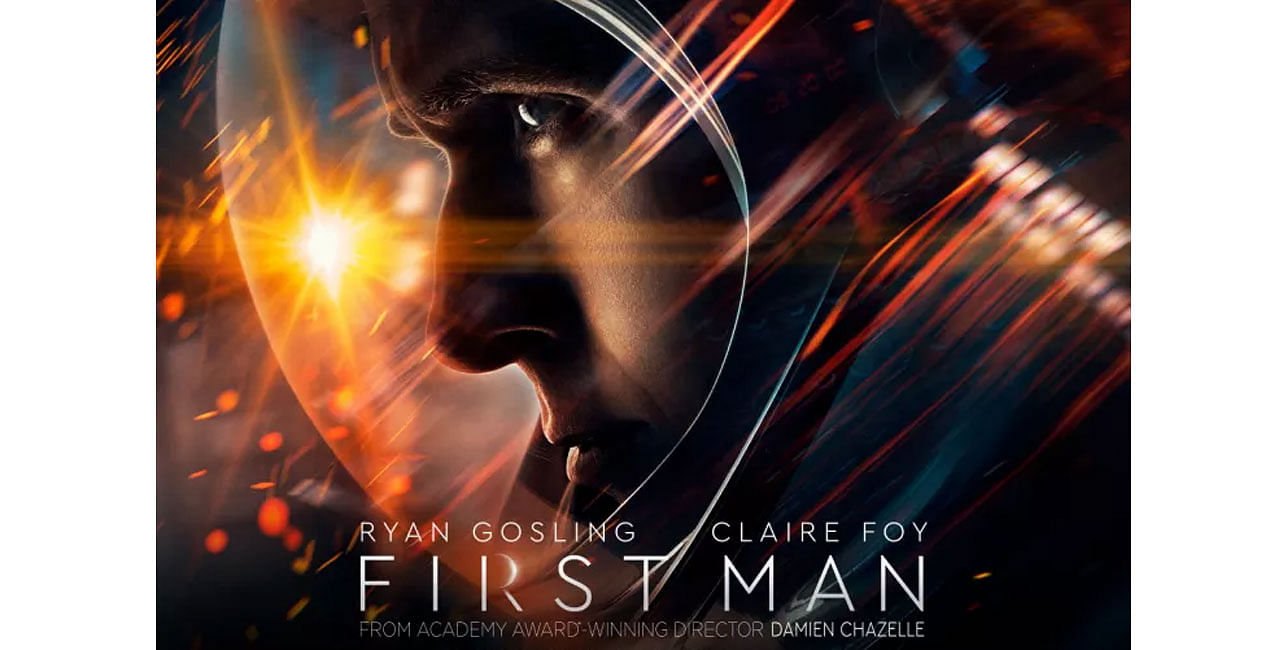
Director: Damien Chazelle
Cast: Ryan Gosling, Claire Foy, Jason Clarke
Rating: 4/5 stars
First Man is the antithesis of a film like Apollo 13. Instead of the pleasant voice and manner of Tom Hanks guiding the narration and your comfort during turbulent happenings, you have Ryan Gosling's reclusive Neil Armstrong who seems to be trapped in a constant war of emotions and memories.
This is an intimate portrait of a man who prefers to remain isolated from everything -- from his feelings and his family. He finds his calling as part of NASA's most challenging missions to space. First Man works because it remains rooted in Armstrong's point of view -- the movie pushes you into his mind space and you experience the grip of the uncertainties that surround any space expedition.
Director Damien Chazelle (La La Land) intelligently chooses to forgo grandiosity for a man's visceral journey through grief and a destiny that is almost too immense to comprehend.
The film opens with the death of Armstrong's 2-year-old daughter; it's an event that shapes much of his inner turmoil for the rest of the story. Based on the biography by James R. Hansen, screenwriter Josh Singer decides to get viewers invested in the emotional weight underlying the characters rather than painting pictures of likeable people.
Gosling delivers a powerful Armstrong who is dedicated and passionate about what he does but is also very aware of his own mortality. The strained relationship between Armstrong and his wife Janet (Claire Foy) forms the core of the narrative. Despite the grief over the child he lost, Armstrong seems incapable of expressing his love for his two remaining sons. This is a man who prefers to spend hours staring into an inky, black night.
The trajectory of First Man moves forward almost like a documentary with many milestones in the space race playing out in front of the characters. Chazelle frames the flight scenes in tight, claustrophobic shots that emphasise the physically draining, sense-numbing experience. There are several white-knuckle scenes that made me dig my fingernails into the seat.
Justin Hurwitz's music makes the captivating choice to blend classical overtures with interstellar travel. The result is a glorious pastiche that strikes a different chord and yet feels oddly familiar.
And what about First Man's patriotism controversy? It's, in a word, ludicrous. The amount of US flag-waving in the film is just shy of excessive. One scene shows one of Armstrong's sons slowly hoisting the American flag on a flagpole and there's a pause for everyone to take in the majesty of the moment. Enough said.
The traumas in Armstrong's life seem to mount as his destiny nears. The film essentially lives in Armstrong's skin and as such, you are shaken and broken when a tragedy strikes his fellow astronauts. And you begin to empathise with his obsession with a mission that seems a bridge too far.
One of the most touching scenes is when Armstrong has to tell his sons that he may not return from the moon mission. The awkward silences, fearful expressions and disquiet around the expedition ring eerily true.
First Man succeeds because Chazelle chooses to pull in too close for comfort when most others would prefer to take a step back. Even Armstrong's first steps on the moon are not played for drama. At that point in the film, we've been on a long journey with Armstrong and we feel that just maybe, his steps were written in the stars.
First Man is definitely a riveting odyssey that proves itself worthy of Armstrong's enduring legacy.
